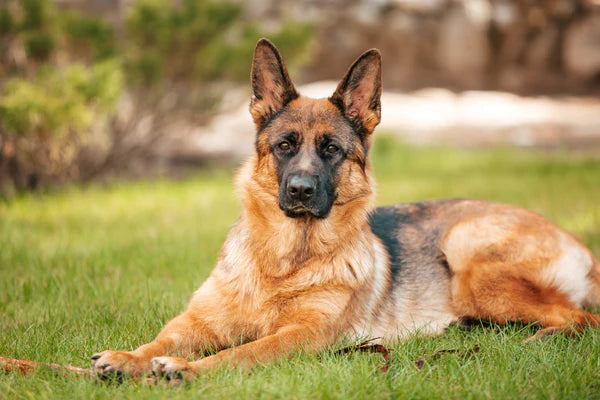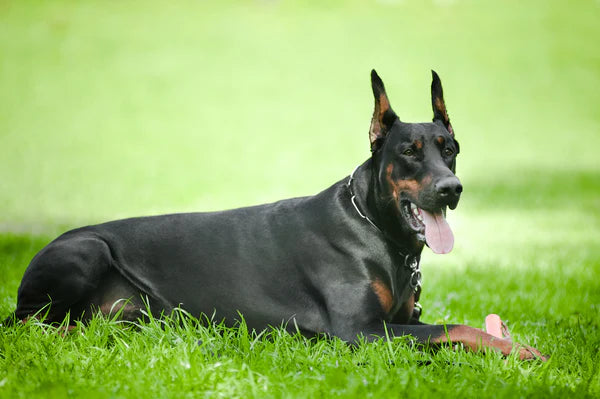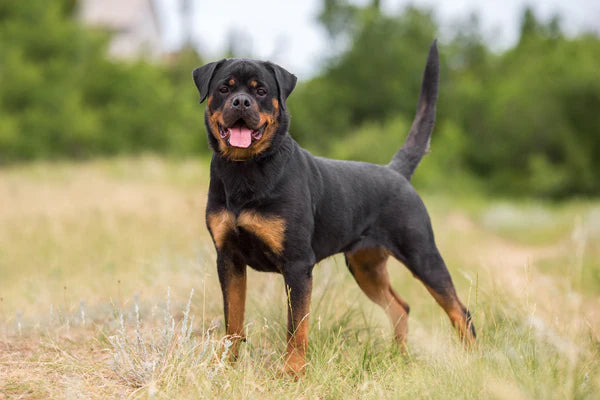Signs of Cancer in Dogs: The 9 Things You Should Never Ignore
Cancer in dogs is the most common cause of death among canines. It has been estimated that about 4 million dogs succumb to canine cancer every year.
The thing is, early detection plays a key role in successfully dealing with this health problem. In this blog post, I will give you the rundown on the signs of cancer in dogs to look out for to include in your home pet care checklist.
- Click to learn more : 👉 Provide immune system support for CANCER IN DOGS with our Natural Product 🐶
How about we start things off by going over the breeds that are more prone to dog cancer?
Which Breeds are Prone to Cancer in Dogs?
A bit of a reminder before we proceed, though.
Seeing your dog’s breed on this list does not automatically mean that he’s guaranteed to have canine cancer sooner or later. Alternatively, it also doesn’t follow that your pet won’t be at risk of cancer if his pedigree isn’t on it, too.
Now we’ve cleared that one up, here are the breeds that are most vulnerable to cancer in dogs based on statistical data collected worldwide:
Beagle
Bernese Mountain Dog
Boxer
Doberman Pinscher
English Cocker Spaniel
German Shepherd

Great Dane
Rottweiler
Standard Poodle

Click here to check out a more in-depth blog post about these cancer-prone dog breeds.
Signs of Cancer in Dogs
While this may sound surprising, you can use your observational skills to help you discern if your canine family member may be suffering from cancer. This serious disease has some tell-tale signs that you can easily keep in mind.
And like I emphasized earlier, early detection plays a key role in successfully dealing with canine cancer. So without further ado, here are the signs of cancer in dogs that you should take note of:
Sign #1: Your pet’s appetite suddenly takes a nosedive.
Although sudden loss of appetite is usually attributed to other health issues like tooth decay, gum disease, and oral abscess, it can also possibly be an indicator that your dog may be going through cancer in canines.
Moreover, this symptom is often accompanied by excessive drinking and increased urination, which are also considered as potential indicators for metabolic illnesses and some types of dog cancer.
Sign #2: Your dog is significantly losing weight without an explanation.
There are a number of possible reasons why a dog can shed off pounds. These can include increased physical activity, parasitic infections, and even diarrhea in dogs, among others.
But if your dog seems to be loading up on food properly and is still losing weight, there is a slim chance that he could be suffering from cancer. Likewise, this indicator usually occurs with swallowing difficulties when eating.
Sign #3: Your pet is having a tricky time going to the bathroom.
If you’re anything like most dog parents, chances are you’re already a bit familiar with your fur baby’s bathroom habits, including his preference where to do his business. And you can use this to your advantage when it comes to detecting cancer in dogs.
Is he straining more than usual when defecating? Does he noticeably strain or struggle when he urinates? If these things happen on a regular basis, there’s a possibility that your pet could be afflicted with dog cancer.
Sign #4: You can hear your furbaby groaning and moaning frequently.
One really astonishing attribute about dogs is that they can conceal pain and discomfort without a fuss. This is why most cases of canine cancer are discovered when they’ve already become established.
However, dogs afflicted with cancer often exhibit subtle yet still observable hints that they are aching. A prime example is frequently groaning and moaning when doing minor things like standing up or guiding their mouths to drink from the water bowl.
Sign #5: You notice lumps that weren’t there before.
This is another reason why you should really set aside a part of your day bonding with your canine family member. One of the signs of cancer in dogs is the appearance of lumps that seem to come from nowhere.
While the presence of lumps on your pet’s body doesn’t automatically mean cancer in dogs, make sure you take note of those that are bluish black in color and remarkably grow larger in a short period of time.
Sign #6: Your pet has persistent wounds and sores.
While the presence of nicks, cuts, sores, and wounds on your dog’s body is not immediately a sign that he has canine cancer, it’s a different story if the ones he’s got don’t seem to heal or even appear to get worse each day.
This could be a sign that your pet’s immune system is having a difficult time fighting off a disease, such as cancer. Other possible factors also include anemia, heart disease and diabetes.
Sign #7: Your dog is giving off stinky odors.
It’s very likely that you’ve already smelled a few of your pet’s unpleasant odors like bad breath, the reek of accumulated sweat and dead skin during dog shedding, as well a fart here and there.
But the thing is your canine family member could be going through cancer if you constantly come across stinky odors that weren’t there before. And these don’t tend to go away even after a thorough bath or brushing session.
Sign #8: You notice that your pet hides most of the time.
A trait that most dogs exhibit when they are suffering from a health issue is the sudden lack of eagerness in play as well as other activities they used to love taking part in. Moreover, a sick dog prefers to hide and skulk instead.
Your canine family member could also display other forms of unseemly behavior like being aloof all of a sudden and showing unnecessary aggression when you try to give them a kiss or cuddle.
Sign #9: Your dog is noticeably having a problem moving around.
This indicator is often seen among younger dogs that didn’t find it tricky to dash, jump, and play by themselves or with their human family members before. Their mobility issues just seemed to come from out of nowhere.
Additionally, this indicator usually manifests itself when the other dog cancer signs that we’ve just discussed have already become apparent.
A Reliable Go-To Kit is a Must for Every Home with a Dog
Having a reliable home pet care kit is essential to ensure that your canine family member will not just be more resilient to health issues, but also boost his overall immune system health in the process.
Zumalka’s HOME ESSENTIALS KIT is designed to provide the right support whether you’re looking to make your dog tougher against disease or boost his natural immune response when he’s feeling under the weather.
The HOME ESSENTIALS KIT consists of our LYMPH DRAINER, KIDNEY DRAINER, LIVER DRAINER, EMERGENCYPET, SILVERPET, TONICPET #4, TONICPET #5, TONICPET #9 and TONICPET #12, which collectively help detoxify organs, support the immune system and circulation, as well as balance hydration, just to name a few benefits.
A Quick Reminder
Being familiar with the signs of cancer in dogs is very important since early detection plays a key role in successfully dealing with this serious disease.
And whether you’re dealing with cancer in dogs or not, having a go-to pet care kit is crucial so you can deal with every kind of situation that can significantly affect your canine family member’s health straight away.
If you’re looking to learn more about dog cancer or how to support your pet should he be afflicted with this health problem, you can contact us at any time. A pet homeopathy professional will be more than willing to guide you through the natural means you can go for.














Leave a comment